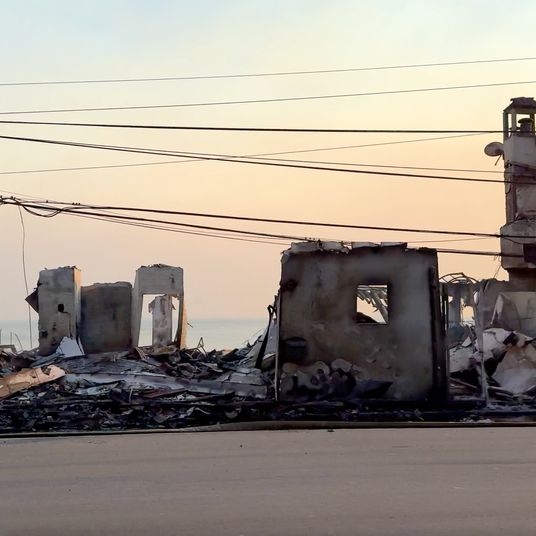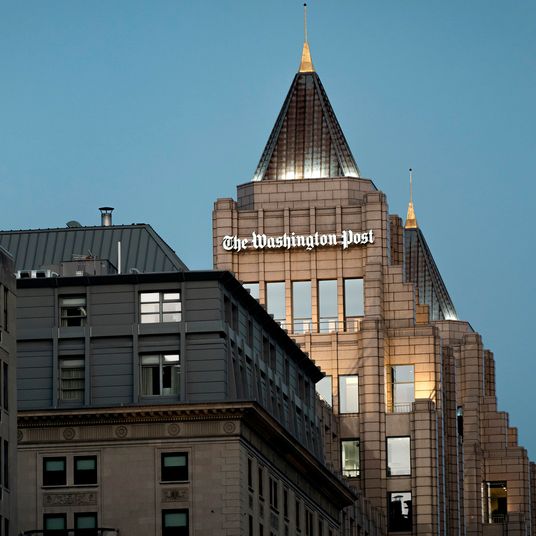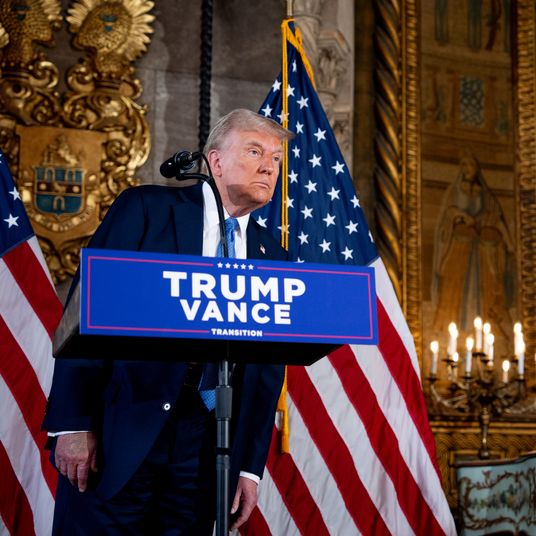
Photo: Getty Images
When the FBI arrested Raffaello Follieri at his condo last week, the curtain dropped on an epically great scam. High-society con men of the last two decades, like Dana Giacchetto and Christopher Rocancourt, ingratiated themselves with celebrities and, when nobody was looking, stole their money. But Follieri, despite his relationship with Anne Hathaway, was different: More single-minded and more audacious, Follieri’s con was a bald-faced lie. Looking for investors to help him buy and develop Catholic Church–owned properties, he claimed to have such close ties to the Vatican that he’d be able to get a bargain rate on the real estate. (You’ve got to have some nerve to name-drop the Vatican when you’re sinning.) His biggest target, billionaire Ron Burkle — an investor whose money Follieri was found to have misappropriated — suggests that Follieri was confident enough to work on a level beyond simply swindling stars. He operated in a Clintonian orbit of international power brokers that both lent him legitimacy and, eventually, brought him down.
Compared to the frenetic activity of Giacchetto and Rocancourt, Follieri comes off as calm and deliberate. Giacchetto networked like a fiend, made himself the New York money manager to Hollywood (Leonardo DiCaprio, Michael Ovitz, Courteney Cox), and was eventually busted for stealing from his clients’ portfolios to finance his partying. Rocancourt was more drifter-chic: Adopting dozens of aliases, he curried favor with illustrious B-listers such as Mickey Rourke and Jean-Claude Van Damme in Los Angeles, and in the Hamptons, pretended to be Christopher Rockefeller, the “French Rockefeller.” (Almost as absurd as keeping Catholic robes on hand to give the impression that you’re tight with the Pope, which Follieri did.) Giacchetto was a starfucker; Rocancourt was playing a grab-and-run game — get the money, then disappear. Follieri, however, was more focused: He went straight to Clinton aide Doug Band and paid him a $400,000 “consulting fee” for an introduction to Burkle. [Ed. update: Band claims to have retained only a “finders fee” for facilitating an introduction to Canadian real-estate tycoon Michael Cooper, a contributor to Bill Clinton’s foundation.]
You can almost imagine Follieri outlining his con in his Franklin planner. He arrived in New York pushing the Follieri Group, a real-estate-development company interested in the aforementioned church properties. But he needed investors, so he went straight to the top — Burkle and his bestie, Bill Clinton. His purported Vatican ties made the deal all the more appealing, especially since he hinted that he could secure the Catholic vote for Hillary. How convenient! Burkle’s Yucaipa Cos. pledged up to $105 million; at that time, Bill Clinton was an adviser to the company.
Then Follieri allegedly used much of that money to finance his masters-of-the-universe lifestyle, hence the federal indictment for misappropriation of funds. But when the accusations first started in April 2007, after Burkle filed a civil suit for the same reasons in Delaware, Follieri didn’t try to hide a thing, and he wasn’t trying to distract anyone — except, perhaps, poor Anne Hathaway. Nevertheless, for more than the past year the Journal-reading public has been marginally aware that this Follieri fellow might be involved with some very dicey business dealings (and the Post-reading public was at least aware that Anne Hathaway’s boyfriend was sketchy). But the guy just kept on doing his thing, even in the face of defeat: Follieri lost the civil suit against Burkle, and he was sued in October 2007 for breach of contract for failing to pay a D.C. public-relations firm $250,000. In April of this year, a day after a judge ruled that he pony up, cops hunted down Follieri for a bounced check written for $215,000. He had $39.08 in his bank account. And then, three weeks ago, State Attorney General Andrew Cuomo announced that Follieri’s charitable foundation was under investigation.
So why’d it take Follieri so long to actually get cuffed? If it was Burkle’s lawsuit in 2007 — which closely mirrors the federal indictment that has been Follieri’s final straw — that kicked off the slow unraveling, then it’s also Burkle’s stratosphere that kept Follieri in the clear. It took almost five years for someone to catch on to Follieri because he was able to tell the Big Lie. The audacity of his scheme, the swagger and self-confidence it takes to con the billionaire boys’ club for years, the ability to carry on for another year while you’re slowly getting busted, and to keep your movie-star girlfriend from dumping you until the very last minute — it was actually kind of exceptional. —Jessica Coen
More: Read all of Daily Intel’s Raffaello Follieri coverage





























